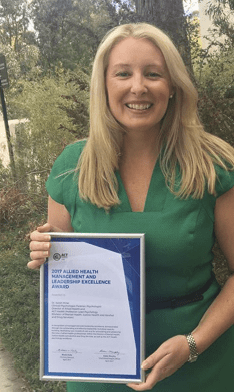
Sarah Miller completed her doctorate in psychology on cross-cultural mental health and also has qualifications in human resources, and international and community development. Sarah has a special interest in service development, leading teams and projects in the humanitarian sector, advocating for human rights, and working with people who have experienced trauma.
She has led teams in humanitarian deployments with the International Federation of Red Cross following the floods in Pakistan in 2010 and the massacre in Norway in 2011. She has worked with the International Committee of the Red Cross (ICRC) in conflict zones such as the conflict torn area of the Philippines following the typhoon in 2013 and 2014, Chechnya in Russia in 2015, and three trips to Syria as the Mental Health Adviser to develop and lead the establishment of mental health programs to assist the population and staff affected by the ongoing crisis. Sarah is currently the only Australian psychologist on the delegation list for deployment by ICRC to provide mental health advisory roles in response to natural disasters and in conflict zones.
What is the main characteristic that you believe all leaders should possess and why?
While emotional intelligence as a construct has varying levels of empirical support, I believe the capability of individuals to recognise their own and other people's emotions is a necessary ability for any effective leader. The ability to understand your team and their motivating factors for work, and to be able to work to their strengths, produces an invested team that is productive and engaged in collective outcomes. I believe by connecting organisational goals to people’s personal values, a team comes to identify strongly with the organisation, the mission and each other.
What other characteristics and attributes make a good leader?
Intuitive leadership such as the ability to take action based on vision, the ability to be able to cultivate solutions or be creative about doing things a different way, and a willingness to step back and survey the landscape, evaluate, and anticipate where to go next.
You also can't go past some good old-fashioned passion for the cause as an attribute making an effective leader. As John Maxwell the leadership author said: “A great leader's courage to fulfil his vision comes from passion, not position”.
What do you see as some of the key decisions and opportunities that have helped you in your leadership roles?
Choosing the right role and organisation to make sure you're the right organisational fit. It's hard to lead if you don't believe in the direction of the management group, the way in which you are encouraged to perform, and what are seen as the indicators of success. Choose the right place for you to thrive.
What are some of the challenges that you have had to overcome in leadership positions?
In humanitarian environments this has definitely been language and cultural differences, unstable and unsafe contexts, lack of resources and time, the insurmountable size of the problems, and not being in a familiar environment where you have access to your normal ways of coping. Being shot at and dodging missile shrapnel while at work is truly a challenge to lead amongst!
Did your psychology background help you in taking on leadership roles and if yes, how?
Most definitely. The core training and skill set of a psychologist is to assess a situation, make a formulation, break down the problem into manageable parts, identify strengths, challenge dysfunctional ideas, and collaboratively develop and implement solutions. The psychology skill-set is most certainly the perfect foundation for a leadership position.
What do you see as the key differences between a good leader and a good manager?
I see managers as planning and organising the human, financial and physical resources for a goal. Some literature will say 'managers have people who work for them'. But leaders motivate and inspire people by developing and encouraging them, challenging the status quo and being change agents – 'leaders have people who follow them'. In my view, leaders navigate a path, identify waypoints to check the direction, provide support to fellow team travellers along the road, and celebrate the group achievements.
What advice would you give to psychologists taking on leadership positions?
Start by listening and observing. Use your well-developed perception skills to interpret the context and get to know the people who join you on the journey every day. Make your analysis, identify where you'd like the service to be in the short, medium and long-term, develop your vision, and be grateful for innovation opportunities which come your way. Most importantly remember change is a process not an event. Sometimes leadership is about vision, and other times it's about one foot in front of the other with tenacity and belief.